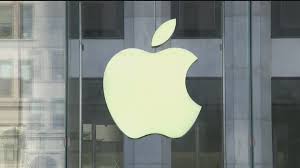DOJ Takes Aim At Apple’s Dominance Over Smartphones

The Justice Department has a long and rich history of targeting dominant companies using antitrust monopolization tools — looking back to the 1980s, it was AT&T; in the 1990s, it was Microsoft; and in 2023, DOJ has brought a monopolization case against Google; and meanwhile the FTC filed monopolization cases against Facebook and Amazon.
DOJ has now turned to Apple and its dominance in the smartphone market. DOJ’s action follows explicit warnings to the tech industry on exclusionary conduct. Apple’s conduct, according to DOJ, is a textbook example of a monopolist, Apple, leveraging its dominant position to exclude potential competition. The Antitrust Division’s Assistant Attorney General Kanter has been outlining these theories of enforcement for years. DOJ has now delivered in real world terms with its unprecedented case against Apple.
DOJ noted that Apple executives and managers recognized the threats from alternative technologies, such as Android phones, and coordinated responses to thwart innovation and strangle competitive alternatives. Apple’s strategies were deployed across many technologies, products and services, including super apps, text messaging, smartwatches and digital wallets.
DOJ alleged that Apple’s anticompetitive conduct restricted competition in the smartphone market but now extends into related markets including financial services, fitness, gaming, social media, news media, entertainment and more.
At the core of DOJ’s complaint is the defined relevant market — performance smartphones — high-end smartphones with extensive functionality. This is distinct from low-end, entry level smartphones. In this high-end market, Apple controls at least 70 percent of the market in contrast to Android-phones.
Apple charges as much as $1,599 for an iPhone and earns high margins on every phone, more than double those of others in the industry. When developers bring new applications for the iPhone, Apple secures as much as 30 percent of the application price, and another 30 percent for each product or service bought through the application. Further, in financial transactions, Apple charges a fee for every “tap-to-pay” transaction as its own interchange fee on banks and new cost for credit cards users. in the advertising market, Google gives Apple a significant cut of the advertising revenue that an iPhone user’s searches generate.

To restrict the competitive threats posed by third-party application developers, Apple employs restrictive contract provisions to prevent third-party developers from leveraging alternative application stores, in-application payment processors and others. To this purpose, Apple degrades performance of certain applications across competitive smartphones (e.g. text messaging) and excludes access to key points of connection between applications and iPhone’s operating system (“APIs”).
DOJ’s complaint, which was filed in the District of New Jersey, outlines five core areas of core anti-competitive conduct:
Growth of Innovative Super Applications: Apple has constrained the growth of applications with broad functionality that would facilitate switching between smartphone platforms.
Suppression of Mobile Cloud Streaming Services: Apple has blocked the development of cloud-streaming applications and services that would allow consumers to enjoy high-quality video games and other cloud-based applications without having to pay for expensive smartphone hardware.
Excluding Cross-Platform Messaging Applications: Apple has degraded the quality of cross-platform messaging, restraining innovation and security thereby forcing consumers to buy iPhones to maintain texting capabilities.

Diminishing the Functionality of Non-Apple Smartwatches: Apple has limited the functionality of third-party smartwatches so that users who purchase the Apple Watch face substantial out-of-pocket costs if they do not keep buying iPhones.
Restricting Third Party Digital Wallets. Apple has prevented third-party applications from offering tap-to-pay functionality, inhibiting the creation of cross-platform third-party digital wallets.
DOJ’s complaint alleges anticompetitive harms beyond these five examples, noting that Apple’s conduct extends to web browsers, video communication, news subscriptions, entertainment, automotive services, advertising, and location services.















